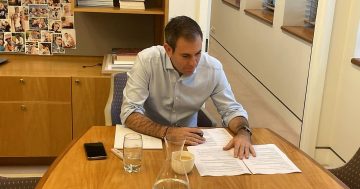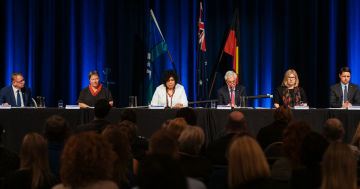
According to the taskforce, the aged care sector is not in a financial position to meet expected demand, deliver on the required quality improvements, or invest in meeting Australia’s future needs. Photo: Ridofranz.
Individuals with personal wealth should be asked to pay more for aged care to allow those less well-off to receive greater support, the Aged Care Taskforce has found in its final report.
Led by Aged Care Minister Anika Wells, the taskforce has published 23 recommendations in its final report on the sector that’s expected to reach $42 billion in Commonwealth funding in 2026-27.
“There is a universal acceptance that something must change to ensure all Australians can age with the dignity, safety, and high-quality care they deserve,” Ms Wells said.
The Federal Government currently funds 75 per cent of residential aged care and 95 per cent of home care, which the taskforce found to be sub-optimal.
While the Royal Commission into Aged Care suggested the introduction of a 1 per cent tax levy to help pay for the sector, the taskforce has made a case for wealthier individuals to instead pay more for their own care so those less fortunate can receive greater support.
Essentially, the government would continue to be the dominant funder of aged care, but those with the means would be asked to contribute more to things they have typically paid for their whole lives, such as accommodation and living expenses.
However, the report said personal care workers and nursing services should be free or heavily subsidised, as they already are for people of all ages in Australia’s healthcare or disability systems.
The recommendation clearly states that these co-contributions should be grandfathered so they don’t impact those already receiving aged care in a system that is “under stress”, according to Ms Wells.
The Aged and Community Care Providers Association (ACCPA) has welcomed the final report, stating that providers are barely able to keep their heads above water and the situation is even worse in regional and rural areas.
ACCPA CEO Tom Symondson said the unavoidable truth was that aged care needed more predictable investment to deliver high-quality services in line with community expectations.
“With our sector losing billions of dollars over the past five years, there has been almost no investment in growing our services to cater for the increasing numbers of people who need them,” Mr Symondson said.
“Lenders won’t lend money to providers to fix these problems because they can’t afford to pay back those loans, creating a vicious cycle.
“The hardest question is how to balance the fairness of asking older Australians with financial means to make a greater financial contribution to their own care against the fairness of asking a shrinking percentage of working-age Australians, who already fund the vast majority of the aged care system through their taxes, to shoulder an even greater burden.”
Representing 12 per cent of all the nation’s aged care facilities, Catholic Health Australia urged the government to swiftly implement the taskforce’s recommendations.
“As our population ages and more people seek aged care, services will need additional funding to upgrade existing facilities and invest in new places,” CEO Jason Kara said.
“The fairest way to deliver extra funding is to ask people who can afford it to contribute more for their accommodation and living expenses, costs they have covered over their adult lives.
“Right now, user contributions do not meet the cost of provision, and research has shown that people are willing to pay more for their aged care services.
“With most aged care providers running at a loss, these sensible and responsible reforms are urgently needed so they can continue to invest and provide quality care for all Australians – whether they be in a city, regional town or remote community.”
Another taskforce recommendation was to phase out all lump sum payments for aged care costs by 2035 and replace them with a rental-only model.





















